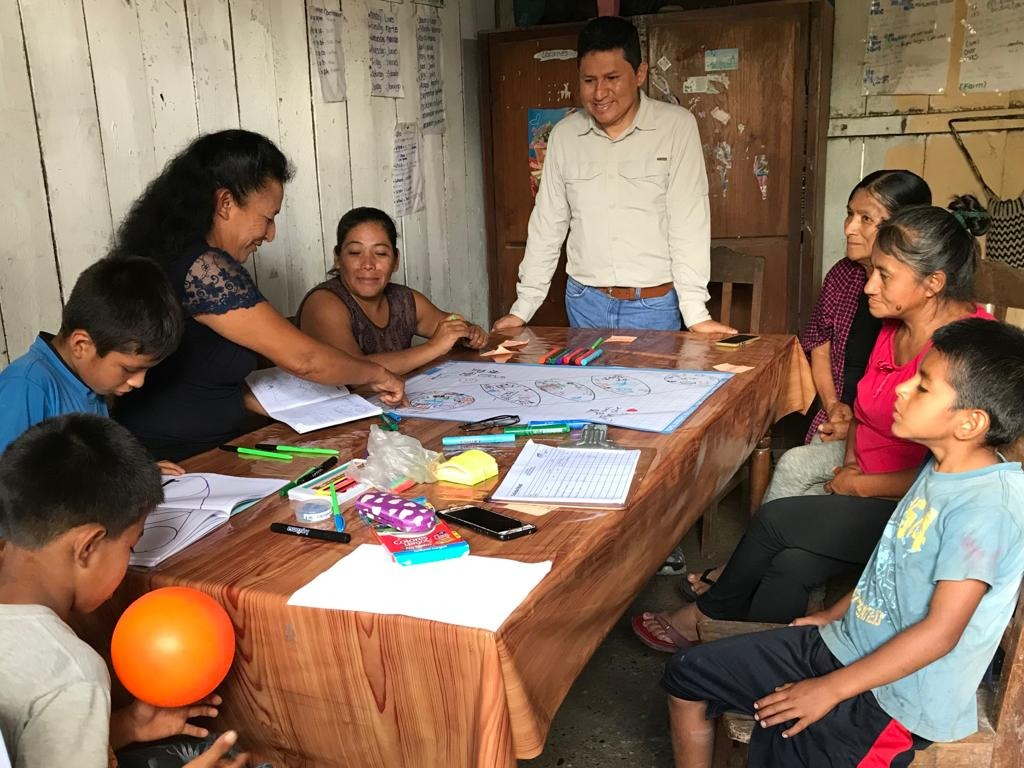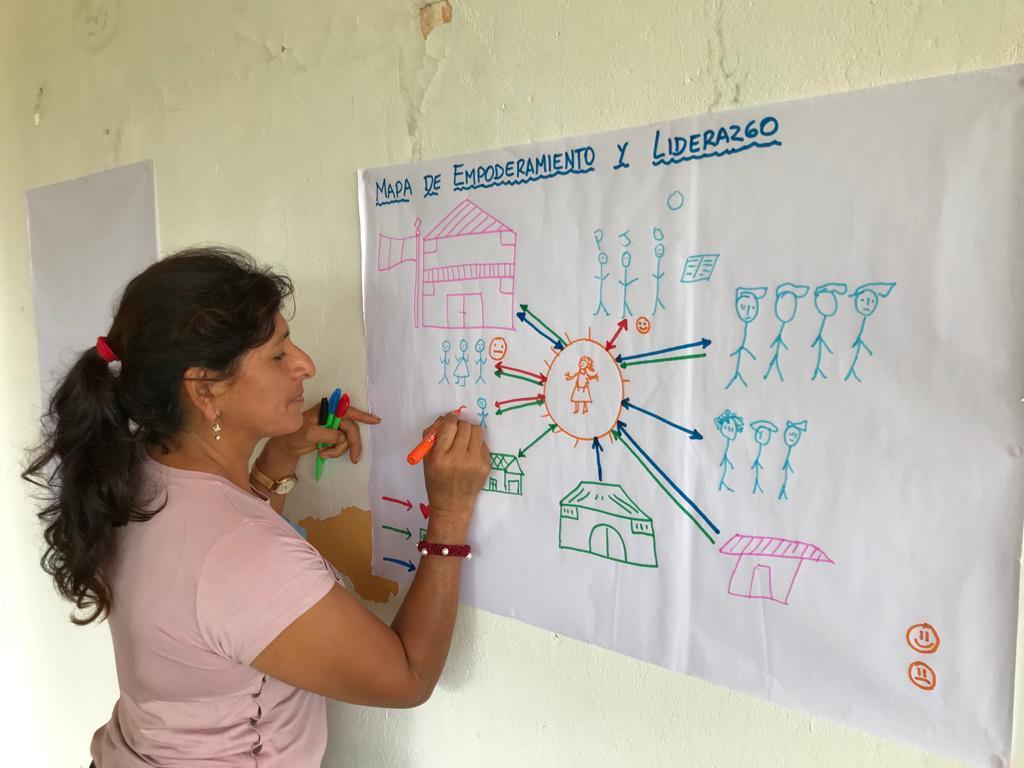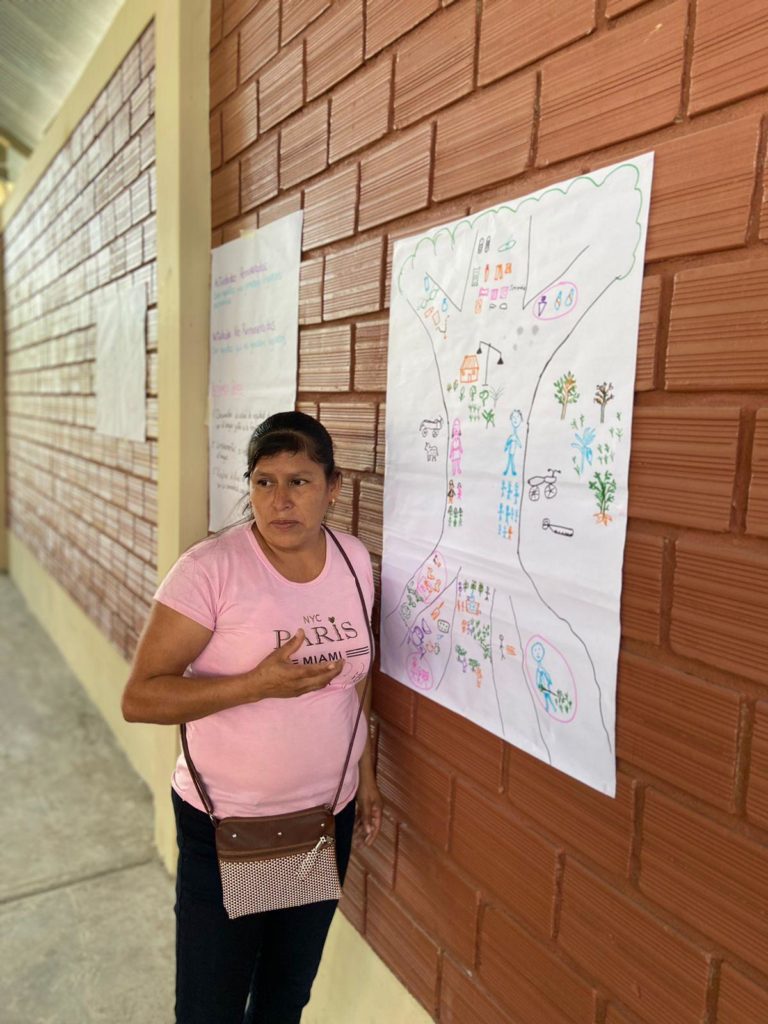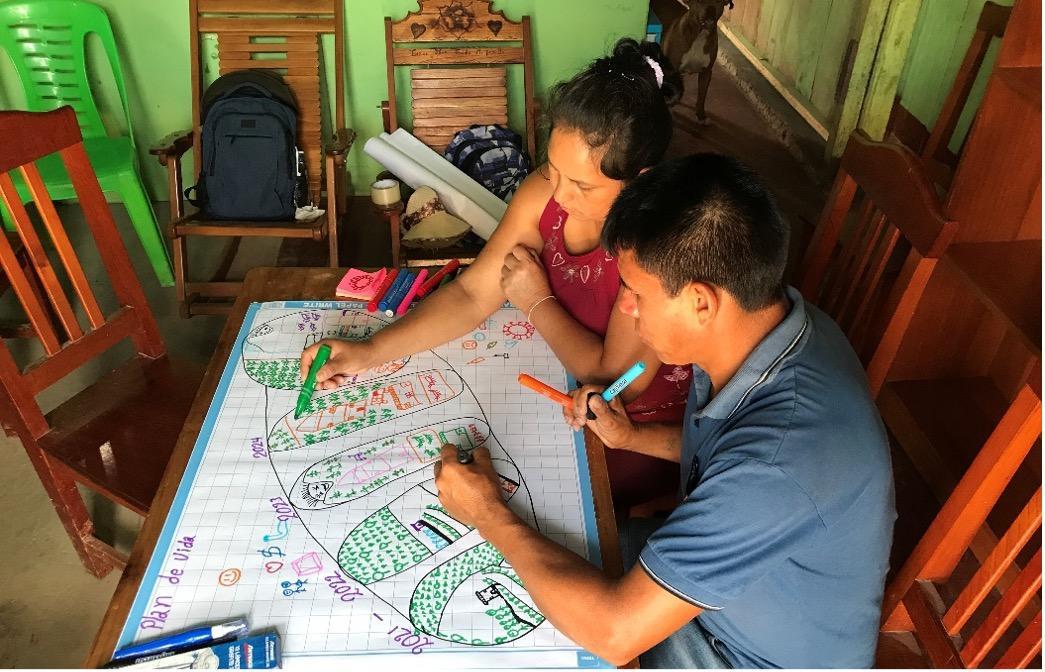Launched in 2019, the Circular Coffee programme aims to tackle unsustainable practices in global coffee supply, starting with the supply chain running from Peru to the Netherlands. The five-year programme is based on a vision of circularity, focusing on zero-waste, upcycling and better environmental practices.
But true sustainability is about more than the environment. It’s about ensuring that no one in the global supply chain is left behind due to poverty or inequality. It’s about making sure that every member of a community can contribute and benefit from their environment and their work.
Coffee production and gender roles
As is the case in many sectors, women’s contributions are often overlooked in coffee production. Women play an important role in preparing, producing and harvesting coffee beans – accounting for 30 percent of overall production labor costs. These tasks are often perceived as an extension of the domestic roles that many women take on instead of the critical contributions that they are.
Because their work in coffee production goes largely unacknowledged, women do not benefit from training, access to resources, decision-making or leadership roles, and opportunities to generate income from their work. The Circular Coffee programme applies a gender transformative approach to overcome the barriers that women face in coffee communities and challenge farming families’ perspectives around gender roles.
Transformative training
The programme has been progressing over the past three years with the support of the Netherlands Enterprise Agency (RVO), Solidaridad and our project partners. During that time programme coordinators have facilitated training for coffee farming communities in the San Martin region (Peruvian Amazon) on subjects including:
- reducing soil exhaustion and waste,
- formalizing land ownership,
- developing the business case for upcycled coffee grounds, and
- gender inclusivity.
Sustainability and empowerment go hand in hand and we recognize that the ripple effect of the programme can lead to transformative outcomes.
An empowered woman can improve many aspects of her children’s lives. For that reason, technical assistance with a gender perspective is important to overcome poverty.
Jessica Holdebrandt, a technical extensionist for coffee producers with the Associación Cuencas del Huallaga.
“An empowered woman can improve many aspects of her children’s lives. For that reason, technical assistance with a gender perspective is important to overcome poverty,” said Jessica Holdebrandt, a technical extensionist for coffee producers with the Associación Cuencas del Huallaga.
However, incorporating a gender angle into the Circular Coffee programme isn’t as simple as inviting women to training sessions. It requires a proven methodology.
Fostering gender champions in coffee communities
Solidariad’s team in Peru, led by Lesly Vera and Lourdes Villegas, implemented a gender inclusivity programme based on the Gender Action Learning System, or GALS. GALS is a community-led empowerment methodology developed by Linda Mayoux that uses the principles of inclusion to improve vulnerable people’s income, food and nutrition security in a gender-equitable way.
We use GALS to identify how inequalities and inequity hinder the development of the personal, family and community vision. It also provides a framework for work and reflection to address areas of concern that prevent women and men from achieving their goals.

Based on GALS, Solidaridad identified and worked with 65 Gender Champions from the San Martin coffee community. These women and men, along with their sons and daughters, were provided with support and training. They participated in workshops and developed their own skills needed to provide gender inclusivity training to other coffee producing households.
Solidaridad then monitored and provided guidance at the workshops that these Gender Champions organized in their own communities. The exercises are ultimately about providing the opportunity to creatively engage with the reality of gender dynamics in families and communities, and identify possible changes and ways to thrive together. The Gender Champions supported each participating household in creating their own household vision for a more gender inclusive way of living together.
According to one participant: “We are used to living only in the present and have no aspirations for the future. We are satisfied with what we have. With this methodology we are learning to set goals.”
Roughly 187 households took part in community-led workshops with the aim to reach 1,600 by the programme’s completion in 2024. We believe that these workshops create a ripple effect that can extend deep into the coffee communities of San Martin.
Programmes like Circular Coffee show that when a development programme takes a holistic approach to sustainability that considers both environmental and social issues, impact can be felt at a deeper level. By embedding a gender transformative approach in the programme, the environment benefits from a wider swath of advocates. And, by supporting farming communities as they protect their land and livelihoods, gender inclusive developments can be made to last.

A global effort towards gender transformation
The efforts made towards gender inclusivity in this project are far from unique in our work. Across various regions and commodities, Solidaridad has been striving towards gender inclusive programming for several years. We are keen to ensure that our organization contributes to addressing existing power imbalances, and that the people we work with at the beginning of value chains have genuine ownership, representation and participation in the decisions that affect their livelihoods.


